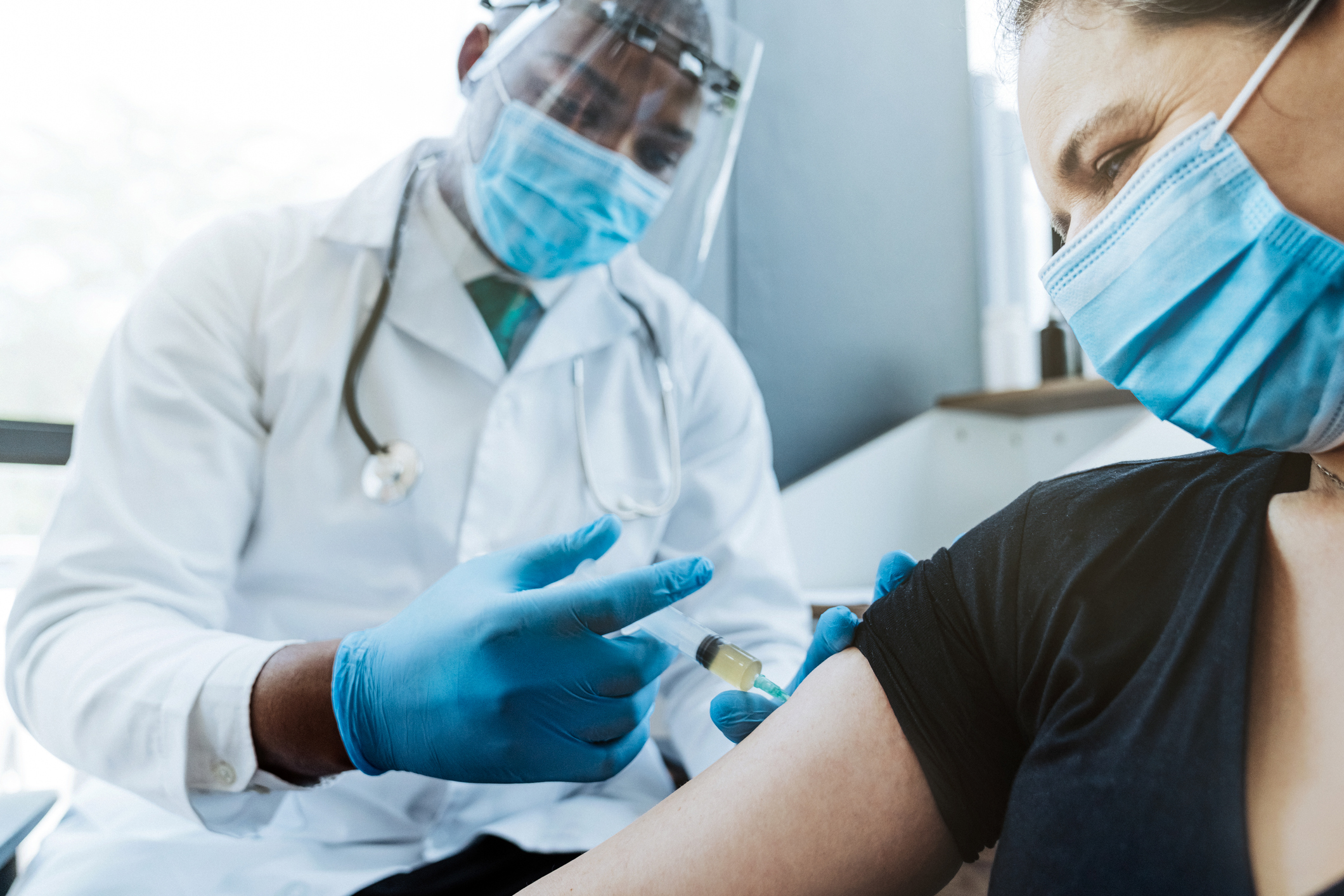Written by: Alan S. Kliger, M.D., Clinical Professor of Medicine, Yale School of Medicine, and Co-Chair, American Society of Nephrology (ASN) COVID-19 Response Team.
As 2021 unfolds, the COVID-19 pandemic continues. Dialysis patients continue to isolate at home, socially distance from family and friends, use face coverings and precautions traveling to dialysis and in the unit. How will this pandemic end? Many patients have important questions about the new vaccines and about new treatments for the infection.
First, some facts about the vaccines:
- What is a vaccine? An injected vaccine is designed to stimulate your immune system to produce antibodies that attack and kill the virus invading your body. Our immune systems help defend us from invading organisms. When a new virus attacks the body, cells of the immune system are stimulated to make specialized proteins called antibodies, that recognize the invading virus particles, attach to the virus particles and destroy them. It takes days or weeks for the immune system to develop these specific antibodies, so they are most useful to prevent re-infection of that same virus after you recover from a first viral illness. Vaccines are given to “jump-start” the immune system to produce these antibodies before the first virus infection, so that they go to work immediately if you catch the virus.
- Can you get COVID-19 from the vaccine injection? No – – the vaccine does not contain virus that causes disease, it contains small particles of the mRNA protein that is manufactured to look exactly like the mRNA of the virus. These particles stimulate the immune system to action, but they cannot cause infection themselves.
- Is the vaccine safe? Each vaccine manufacturer must examine the effect of the vaccine on thousands of people before the FDA gives permission for their use. The FDA has given emergency use authorization for the current 2 vaccines, after these tests showed that they are safe. Now after several millions of doses administered, there are only a very small handful of people that have had anything worse than sore arms, or occasionally some fever, weakness and achiness for 24 – 48 hours after injection.
- Does the vaccine work? The data presented to the FDA show that the vaccines are more than 95% effective in preventing COVID-19 infection. Thus while it does not work 100% of the time, that degree of effectiveness is as good or better than most other vaccines in preventing disease. For example, if there are 20 people on your dialysis shift and all receive the vaccine, 19 of the 20 will be protected. Thinking beyond the dialysis unit, if the whole population received the vaccine, and 95% were protected, then a phenomenon called “heard immunity” would assure the virus is eradicated from the whole population.
- Are there special issues for dialysis patients? Yes – there are 2 special issues for dialysis patients:
- Patients with chronic kidney disease, and those on dialysis are at high risk of complications if they catch this virus. A recent publication has shown that chronic kidney disease (CKD) has emerged as the most common risk factor for severe disease, and explains the increased risk of severe COVID-19 for approximately 25% of high-risk individuals worldwide. It is therefore particularly important to prevent this infection in vulnerable CKD and dialysis patients.
- The vaccine studies in thousands of people leading to FDA authorization, did not include dialysis patients, or those with known impairment of their immune systems. Thus, the safety and efficacy of these 2 vaccines has not been specifically examined in this population. Most experts agree that the safety and effectiveness shown in the rest of the population likely implies that these vaccines are safe and effective for dialysis patients. Careful collection of data on dialysis patients receiving the vaccine should be collected over these next several months.
- When will dialysis patients be able to receive these vaccines? Each state and many municipalities have the authority to set the priorities for vaccine delivery and administration. The CDC, our nation’s authority for infectious diseases, has recommended a prioritization schedule for who gets the vaccine first. That recommendation, as of early January 2021, is this sequence:
-
- Phase 1a: Health Care Providers and residents in long-term care facilities
- Phase 1b: People 75 years and older (21 million) and front-line workers
- Phase 1c: People 65-74 years old (32 million), essential workers and people 16-64 years old with high-risk medical conditions (more than 110 million)
- Phase 2: People 16-64 years old without high-risk conditions (less than 86 million)
Therefore, if states go by these recommendations, dialysis patients 75 year and older (phase 1b) will get access to the vaccines soon – – while those younger than 75 will come later (phase 1c), and are part of a huge pool of more than 140 million people potentially competing for access to the vaccine. As of early January 2021, the CDC, recognizing the vulnerability of the dialysis population, is speaking with dialysis companies and the American Society of Nephrology to see if there is a way to get vaccine to dialysis patients earlier. In several states, vaccine has started to be distributed to dialysis facilities.
What are monoclonal antibody treatments for COVID-19 infection?
In November 2020, the FDA gave emergency use authorization for monoclonal antibodies, which reduce the viral load (the number of virus in the body) and the severity of COVID-19. For dialysis patients who have early COVID-19 infection, infusion of this medicine gives antibodies to fight the virus before the body’s own immune system or a vaccine are able to develop your own antibodies. This treatment can prevent the life-threatening complications of COVID-19.
Here are my personal recommendations:
- I encourage all dialysis patients to speak with your nephrologist and consider getting COVID-19 vaccination as soon as it is available. Given the known risk of COVID-19 infection to dialysis patients, and the data so far available about the vaccines, I believe this is a safe and prudent treatment to consider.
- If you contract COVID-19 before you get vaccinated, I encourage all dialysis patients to speak with your nephrologist and consider getting an infusion of monoclonal antibodies.
- I encourage patients residing in states not currently distributing vaccine to dialysis patients to contact your state health departments and legislators to advocate for prompt distribution of vaccine to dialysis patients.




